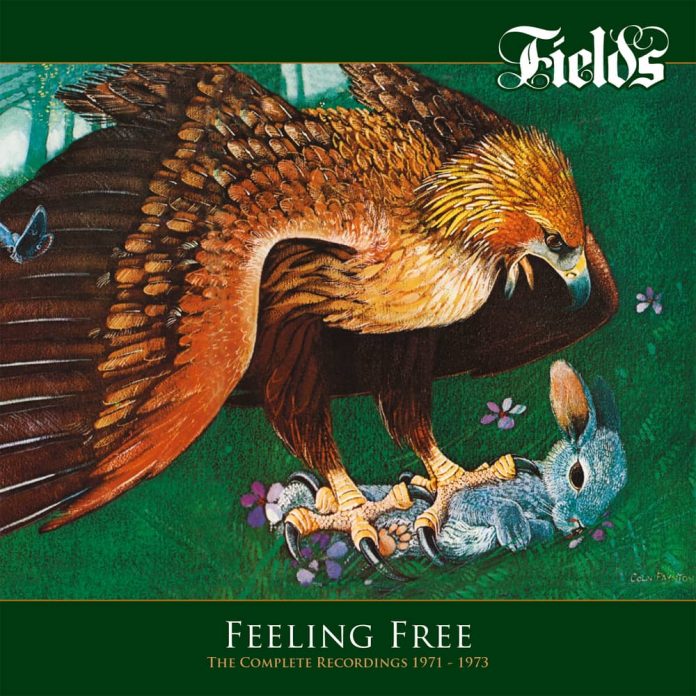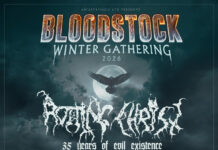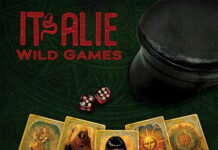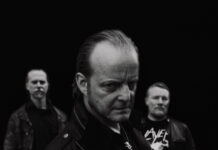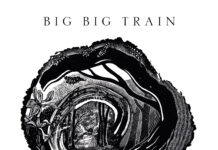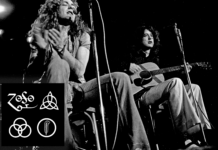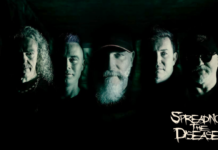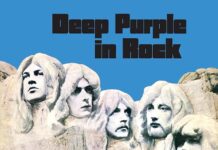Fields were a three-piece progressive rock band formed in 1971 by keyboard man Graham Fields after he’d left his previous band, Rare Bird, shortly after the release of their second album, As Your Mind Flies By. He’d been responsible for many of the better pieces of music Rare Bird recorded, and the band struggled after he left, releasing albums with ever-decreasing returns and eventually folding in 1975.
Fields were a three-piece outfit, formed from musicians who’d played in a diverse range of bands, which included ex-King Crimson drummer Andrew McCulloch and ex-Dowlands Allan Barry on vocals, bass and occasional mellotron. They recorded and released one album in 1971, the eponymously titled Fields and, in 1972, recorded a second album, this time with Frank Farrell on bass and vocals, but their label, CBS, declined to release it, and Fields fell apart, with McCulloch joining jazz-prog band Greenslade and Graham Fields moving onto writing music for adverts and TV. Their second album was finally released in 2015, Contrast: From Urban Roar to Country Peace and, along with the debut album, is now being re-released as a double CD.
Listening to the second album now, despite a kind of prog vibe, overall, it’s largely an unadventurous album with some well-played good tunes but few of the tracks stand out in my mind. ‘Let Her Sleep’ begins with some impressive keyboard work from Graham Fields, but in parts sounds like ‘Friend Of Mine’ from their debut album and the solo is right out of ‘Rare Bird’. Storm uses a female vocalist and is a decent track but overall the album doesn’t have the impact of their debut, as the vocals give the band a different sound and, with a few exceptions, the music is much less engaging and lacks the impact of its predecessor.
But this double CD is worth the price of admission just for the band’s debut album, Fields, which remains a shining example of what was then the developing genre of progressive rock. The musicianship continues in the vein of classical-influenced rock, particularly on ‘The Eagle’ where Graham Fields demonstrates his chops with an interpretation of Pachelbel’s canon in ‘D’ major. Friend Of Mine is a bombastic opener driven by Fields’ Hammond organ and includes classically inspired fugues, with ‘Over And Over’ a lovely piece of keyboard-driven prog. But they’ve more to their skillset than just interpreting classics. Three Minstrels is folk-inspired with a rock attitude, ‘Fair Haired Lady’ is a beautiful ballad played mainly on acoustic guitar with a light touch on the clarinet behind it, and sounds like a track Uriah Heep might have done. ‘Place To Lay My Head’ is a nice slice of soulful bluesy-rock. The vocals of Allan Barry are a standout feature of this album but, after the first album, he left and disappeared from the scene. Whatever became of him?
Fields, though, failed to chart despite the reviews it obtained and, similar to another keyboard oriented band of the time, Refugee, they only released the one album before imploding, which was a pity as this is a thoughtful, melodic and engaging album. Tracks like ‘Friend Of Mine’, ‘Three Minstrels’ and ‘Over And Over’, however, have regularly featured of seventies prog compilation albums, which helped keep the band’s name alive, but somehow Fields fell between the cracks and, while Yes, Genesis, etc, went on to make names for themselves, Fields inexplicably got lost in the mix.

